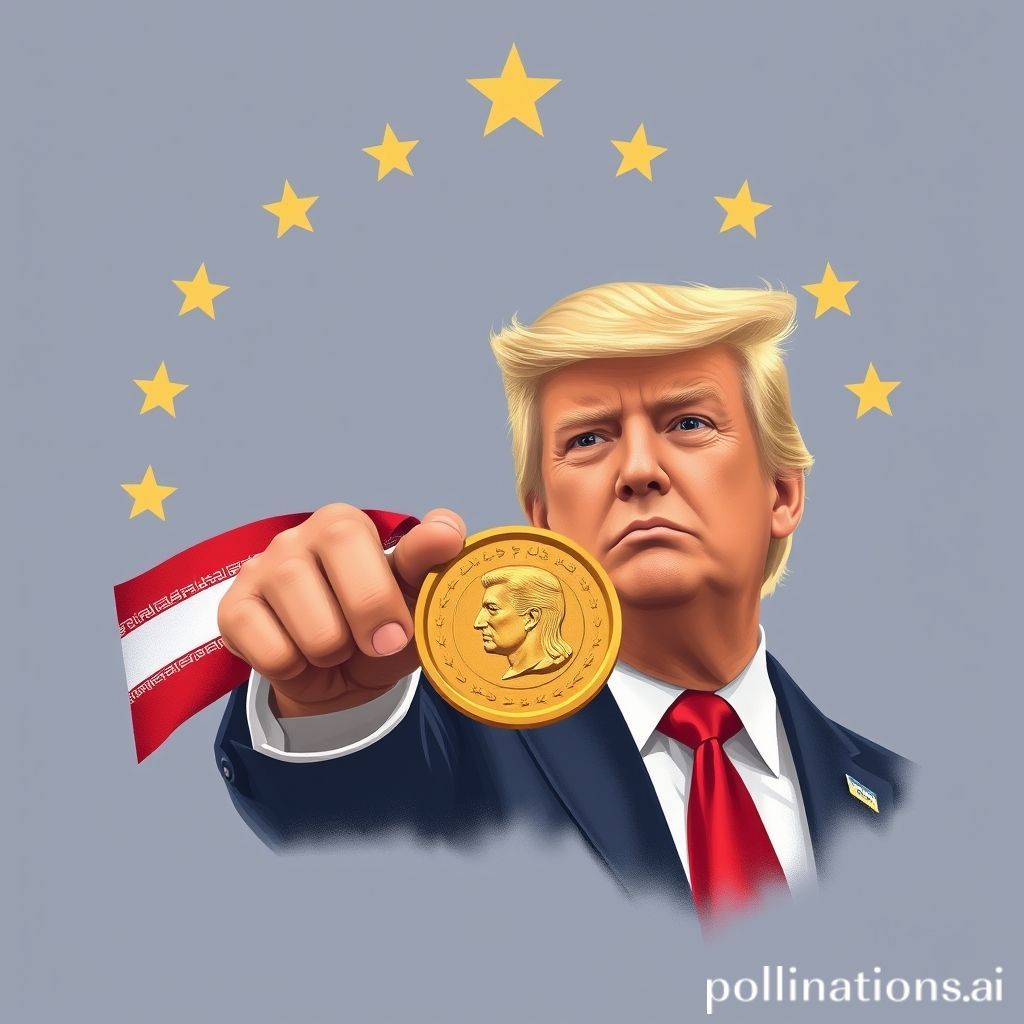
Trump nominated for Nobel Peace Prize over Iran-Israel ceasefire deal
Trump Nomination for Nobel Peace Prize: Examining the Iran-Israel Ceasefire Deal
Hello everyone! In the realm of international relations and peace initiatives, a recent event has sparked considerable debate and discussion: former US President Donald Trump's nomination for the Nobel Peace Prize. This nomination stems from his perceived role in brokering a ceasefire deal between Iran and Israel. Let's delve into the details of this nomination, examining the context, the arguments for and against it, and the broader implications for global peace efforts.
The Iran-Israel Context: A History of Conflict
Before analyzing the ceasefire deal and Trump's nomination, it's crucial to understand the historical context. Iran and Israel have been locked in a state of protracted conflict for decades. This conflict is rooted in ideological differences, geopolitical rivalries, and competing regional interests.
Iran's support for groups like Hezbollah and Hamas, which have engaged in attacks against Israel, has been a major source of tension. Additionally, Iran's nuclear program has raised concerns about its potential to develop nuclear weapons, further escalating the conflict. Israel, on the other hand, views Iran as an existential threat and has taken military action to counter Iran's influence in the region.
The Ceasefire Deal: Details and Key Players
The specifics of the ceasefire deal, for which Trump is nominated, remain somewhat opaque. Details regarding the negotiations, concessions made by each side, and the mechanisms for monitoring compliance are crucial for assessing the deal's effectiveness.
Key players involved, besides Iran and Israel, likely include intermediaries like the US, other regional powers, and international organizations. The US, under Trump's leadership, pursued a policy of maximum pressure on Iran, which some argue created the conditions for Iran to negotiate. The influence of other nations, such as those in the Gulf region, likely also played a role.
Arguments for the Nomination: A Step Towards Peace?
Proponents of Trump's nomination argue that his involvement in brokering the ceasefire deal, regardless of its specific terms, represents a significant step towards deescalating tensions in a volatile region. They might highlight the following points:
Reducing the Risk of War: The ceasefire, even if fragile, reduces the immediate risk of direct military conflict between Iran and Israel.
Creating Space for Dialogue: The ceasefire can provide a platform for future negotiations and diplomatic efforts to address the underlying issues driving the conflict.
Trump's Unique Approach: Supporters might argue that Trump's unconventional approach to diplomacy, including his willingness to engage with adversaries, was instrumental in achieving the ceasefire.
Arguments Against the Nomination: Premature and Problematic?
Critics of the nomination contend that it is premature and potentially problematic for several reasons:
Fragility of the Ceasefire: Ceasefires are often temporary and can collapse if the underlying issues are not addressed. A nomination based on a fragile ceasefire might be seen as premature.
Trump's Broader Foreign Policy: Critics point to Trump's withdrawal from the Iran nuclear deal and his confrontational approach to Iran as factors that contributed to escalating tensions in the first place.
Questionable Motivations: Some suggest that the ceasefire was motivated by short-term political considerations rather than a genuine commitment to long-term peace.
Comparison of Potential Scenarios
To illustrate the potential outcomes, here is a comparison of potential scenarios:
| Scenario | Likelihood | Impact on Regional Stability | Long-Term Prospects for Peace |
| : | : | : | : |
| Ceasefire Holds | Moderate | Positive | Improved |
| Ceasefire Collapses | Moderate | Negative | Diminished |
| Ceasefire Leads to Negotiations | Low | Very Positive | Significantly Improved |
Broader Implications for Global Peace Efforts
The debate surrounding Trump's nomination raises broader questions about the criteria for the Nobel Peace Prize and the role of individuals in promoting peace.
Does a single act of mediation warrant recognition, or should the Nobel Peace Prize be reserved for those who have demonstrated a long-term commitment to peacebuilding? How should the Nobel Committee weigh the potential consequences of awarding the prize to a controversial figure? These are complex questions with no easy answers.
Conclusion: A Reflective Perspective
Personally, I find this situation complex and thought provoking. While any step towards reducing conflict is commendable, the long-term impact and the motivations behind the ceasefire deal warrant careful scrutiny. The Nobel Peace Prize should recognize genuine and sustained efforts towards peace, not just fleeting moments of de-escalation.
Ultimately, the Nobel Committee will have to carefully consider all the factors before making a decision. This nomination underscores the ongoing challenges in achieving lasting peace in the Middle East and the importance of nuanced and well informed discussions about the role of diplomacy and individual leadership in conflict resolution.
Comments
Post a Comment